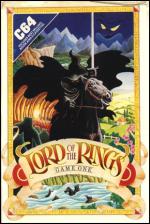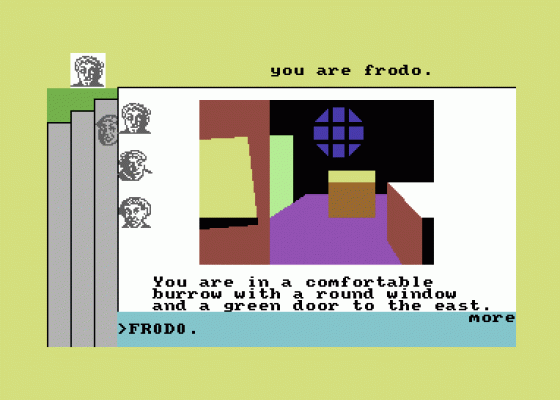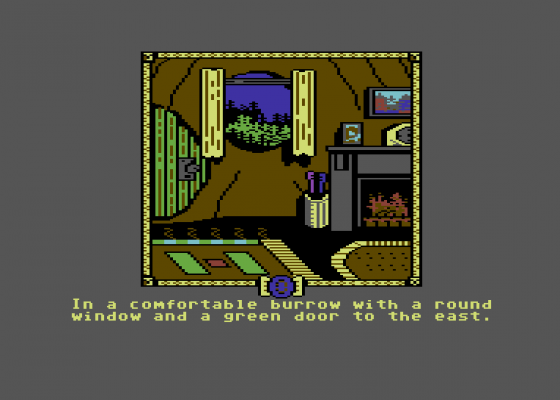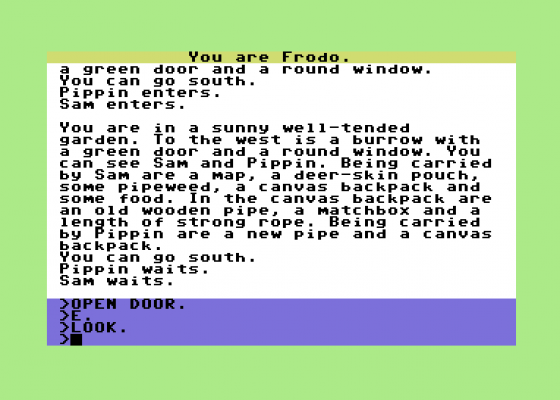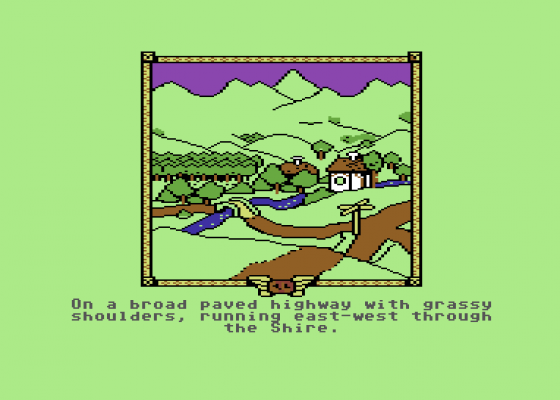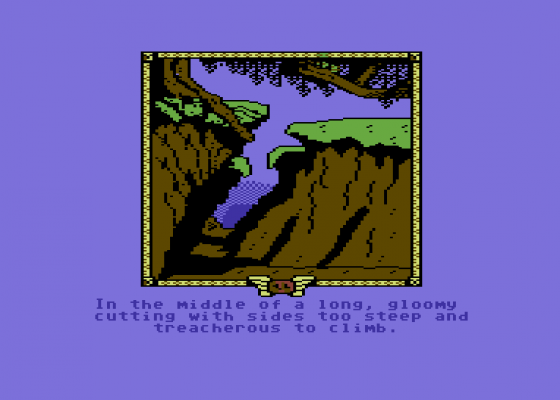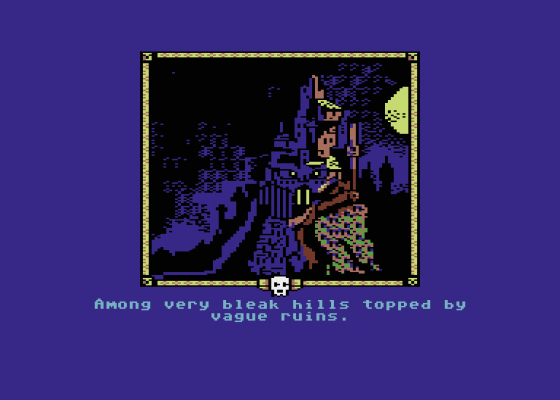
Computer Gamer
 1st May 1986
1st May 1986
Lord Of The Rings
This is the long-awaited follow-up to the highly successful game of The Hobbit. It is based upon the epic tale of the destiny of the Ring of Power, which Bilbo Baggins wrested from Gollum in the previous tale.
The original book of Lord Of The Rings was written in three parts and, similarly, this is the first game of a trilogy based loosely on the book.
The aim is to get Frodo, Bilbo's heir, from Bag End to Rivendell which is the home of Elrond the Elven King. Two of Frodo's friends have been enlisted in this task, Sam the Pippin, and a third, Merry, will join later in the tale. Dark, threatening forces are at work under the control of the evil Lord Sauron. He wants the Ring of Power which will give him supreme control over the destiny of Middle Earth. Aiding him in his wicked scheme are a nasty bunch of Black Riders sworn to recover the Ring at all costs and they are abroad searching for Frodo when the game begins.
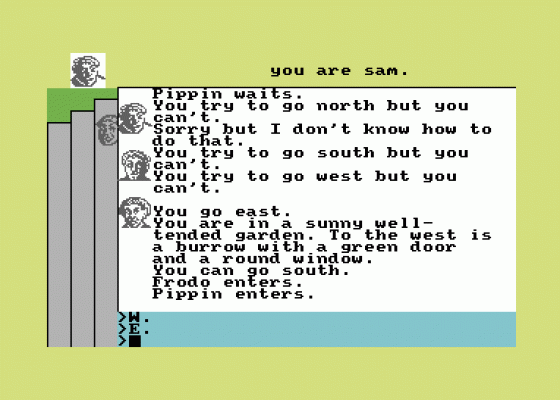
The game can be played by as many as four players at once if each plays a different character. Any unadopted characters are controlled by the computer. The main game comes in two parts along with a simplified version of the first part for beginners who want to get the 'feel' of adventure playing. The beginner's game also includes several more graphics screens, but for my money these are more of a nuisance than an atmosphere enhancer.
A full review of the Spectrum version of the game appeared in February's Computer Gamer so I will now concentrate on this new conversion for the C64. The game's response to commands is rather sluggish, which is a sacrifice which had to be made to allow for the complex operating system required. I found this a little irritating, but acceptable.
One feature which is not only unacceptable but also inexcusable is the program's refusal to respond to some commands. Although syntactically correct according to the instructions, I succeeded in totally locking up the operating system in the following way.
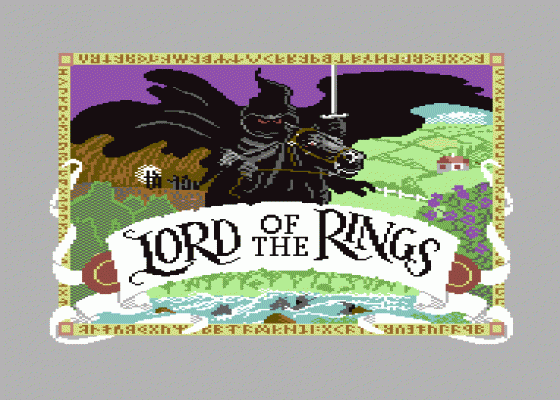
On opening a wooden chest at the first location of the game I gave the command "Take the backpack from the chest". After waiting for several minutes for a response, I decided to go and have coffee. On returning, the computer still seemed to be engaged in its own little world and I had to resort to switching off and reloading from the start. A second attempt at gaining a response to this command also failed.
A lock-up is unforgiveable in any program but one which occurs whilst using acceptable commands is a major flaw which undermines the will to proceed with the game. This failing is reflected in my Value for Money rating which owes a lot to the free Tolkien book which accompanies the game.
Against my better judgement I proceeded to investigate the game and found it to be an excellent game of which Tolkien would have approved, despite a couple of liberties being taken here and there to give it 'street cred' with the kids.
Despite the high regard which I have for the storyline, the lock-up problem creates too many doubts for me to whole-heartedly recommend this game. I suggest that Philip Mitchell and his team should investigate this problem before starting on Part 2 of the trilogy.

